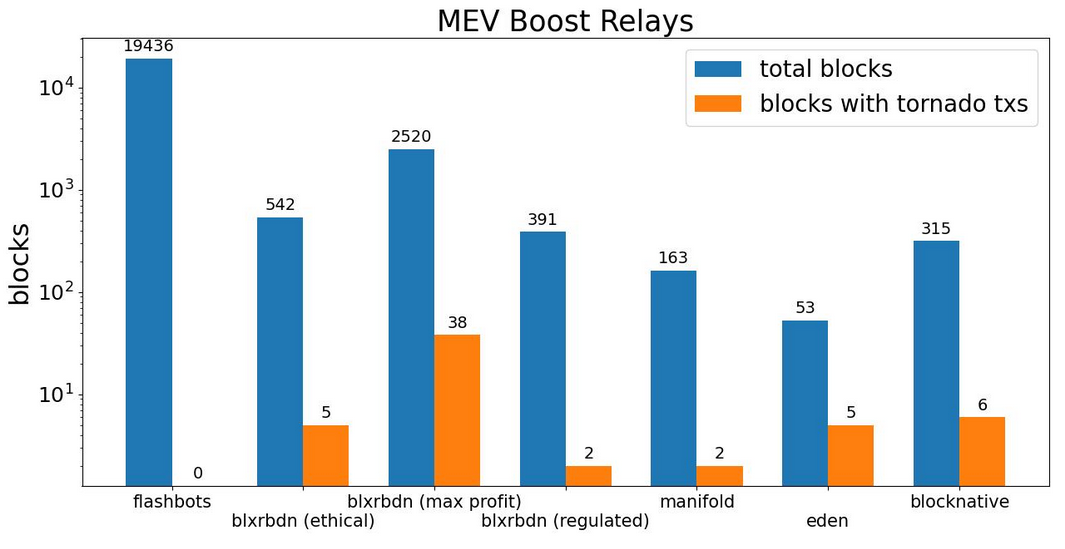SEC's Gensler Deserves Increased Congressional Scrutiny Regarding Crypto Regulation: U.S. Senator
DAI Stablecoin Achieves Over $5 Billion Market Cap Due to Increased Yield and Elevated Spark Protocol Influence
Republican Legislators Call for Gensler to Explain SEC Approval Process for Prometheum
Lachan Feeney, CEO of the blockchain development company Labrys, says that about 45% of all Ethereum blocks that are currently being validated run MEV-boost relay flashbots that follow US sanctions.
In an interview with Cointelegraph on September 30, Feeney said that even though reports say that 25% of all blocks validated since the Merge comply with US sanctions, this is a lagging indicator and the real number is probably closer to one out of every two blocks.
Feeney said that MEV-Boost relays are regulated businesses that are often based in the U.S. and that they "censor certain transactions in the blocks that they build, especially transactions from Tornado Cash."
The CEO also said that validators have a financial reason to use MEV-Boost relays, which would make more people use them, saying:
“The issue, is that from the validators perspective, these guys are paying them to sort of do this. So if you want to make more money, you just turn this feature on and as a validator, you sort of boost your yield.”
MEV-Boost relays are centralized things that are used to get the most out of the Maximal Extractable Value (MEV). MEV-Boost relays make it possible for validators to outsource block production and sell the right to build a block to the highest bidder. Flashbots are the most popular of these.
Labrys put out a MEV Watch tool on September 28. This tool can tell validators which MEV-Boost relays are in line with OFAC sanctions. Feeney said this about the reason why the tool was made:
“We’re just trying to raise some awareness for those who are unaware that by running this software, they are potentially contributing to censorship of the network.”
Feeney brought up a worst-case scenario called "hard censorship," in which "nodes would be forced by regulation to basically throw away any blocks that contained any of these transactions."
"That would mean that no matter how long you waited or how much you paid, those approved transactions would never get added to the blockchain," he explained.
He also said that even if there was soft censorship and transactions that had been approved were eventually validated, it could take hours and cost a lot of money, giving users a bad experience.
Toni Wahrstatter, an Ethereum researcher, published research on September 28 that suggests that none of the 19,436 blocks checked by the Flashbots Mev-Boost Relay contained a Tornado cash transaction. This backs up what we found.

People were afraid of censorship before The Merge. Coby Moran, the lead investigator for crypto compliance and forensics firm Merkle Science, told Cointelegraph that the high cost of becoming a validator could lead to validator nodes being consolidated into the hands of the larger crypto firms, which are much more likely to be affected by government sanctions.
=======















